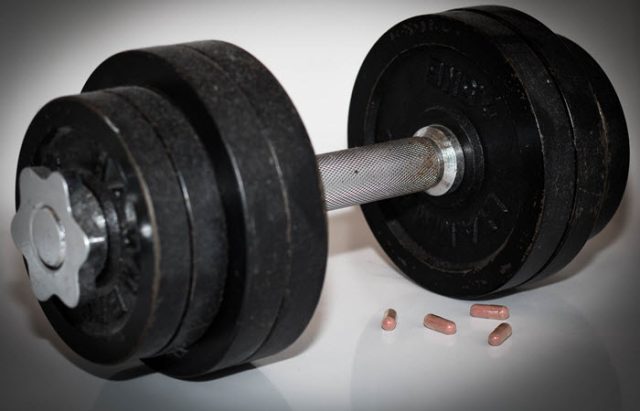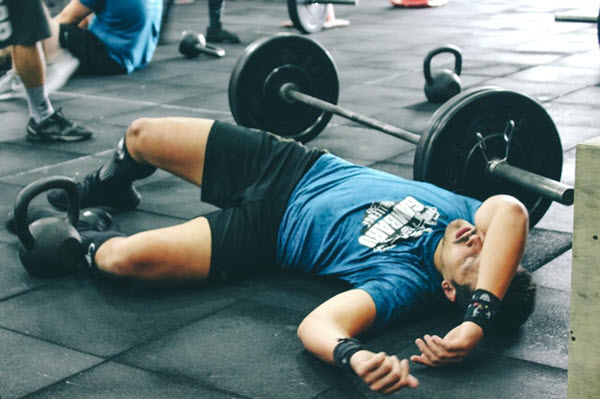Stopping Steroids Abruptly: What You Need To Know About Steroid Withdrawal
By Elmer Hoffman
January 11, 2018 • Fact checked by Dumb Little Man

Edward Kendall from Mayo Clinic won the 1950 Nobel Prize for his research on the medical use of cortisone. This drug helped in simulating cortisol, an anti-inflammatory hormone released by the adrenal glands.
That and many other steroids, such as prednisone and prednisolone, have since been proven useful in treating an array of conditions. They help to relieve ailments, such as asthma, rheumatoid arthritis, and inflammatory bowel disease.
But, steroid use has come at a high price and that price is addiction.
Steroids Dale Guide reports that steroids can aid bodybuilders and athletes in boosting their muscle mass and overall athletic performance. But, as many have realized the hard way, steroids have an inherent risk of addiction, mainly when used for a long time.
There are several concerns that stem from long-term steroid use. These are the medication’s side effects, the imbalance in hormone levels, and withdrawal symptoms.
Steroid withdrawal symptoms occur when a patient attempts to discontinue the drug or decrease his usual dosage abruptly, causing symptoms that mimic other health conditions. In this article, you’ll learn what those symptoms are and how you can overcome the condition.
Steroid Withdrawal Symptoms
These signs will appear after extended steroid treatment has been abruptly stopped.
Abdominal pain
Many steroid users begin to experience intense pain in the stomach region. Others may suffer from a burning sensation throughout the abdomen.
Anxiety
While many individuals report that they suffer from depression, there are those who experience intense anxiety. It arises from changes in hormone levels and HPA.
A decrease in appetite
This is not surprising, given that the majority of steroids work by stimulating an individual’s appetite. When you quit taking steroids, your appetite will decline significantly.
Fatigue
Another common symptom of steroid withdrawal is fatigue. It’s because you are not taking cortisol anymore.
Muscle soreness
Some patients have experienced muscle soreness after discontinuing steroid treatment. We recommend that you purchase some over-the-counter pain relievers to ease the pain.
Physical weakness
It is also not unusual to experience a general sense of malaise. You are likely to feel very weak and achy, but this is just your body’s response to working without the drug that it has been supplied with regularly.
Diarrhea
This is more of an immediate side effect following the discontinuation of steroid use. If you fall prey to this condition, you should consider purchasing Imodium, which can be bought over the counter.
Dizziness
It’s a widespread withdrawal problem from any drug and not just steroids. Luckily, it may wear off in a few weeks or once the drug is out of your system.
Headaches
Some patients start using steroids to treat headaches. Consequently, coming off of the drug may lead to more severe headaches. Some patients may get constant headaches while others experience full-blown migraines.
Joint pain
It is also common for steroid users to feel pain in the joints because of the inadequate cortisol production. It could also stem from the inflammation that comes with the withdrawal process. If you experience joint pain, avoid engaging in rigorous activities as it will only stress your joints further.

See Also: Words of Advice To Keep Your Joints Healthy
What Influences Steroid Withdrawal?
Regardless of the medication that one is taking, some factors can make withdrawal more difficult. The list includes duration, dosage, and individual physiology.
If you’re experiencing steroid withdrawal symptoms, it’s probably because of these factors:
Time Span
As a rule of thumb, the longer the time you take your steroids, the longer it will take for your body to readjust to normal functioning.
Using steroids for up to a month or a year causes your body and brain to rely on the drug exclusively. As a result, it becomes incapable of functioning well in the absence of the drug.
In contrast, an individual who has been using steroids for just a short period will have an easier time discontinuing the drug.
Dosage
Steroids are used in treating a vast range of illnesses. Consequently, the dose that your physician prescribes will rely on the condition he’s treating.
If you choose to take a dosage higher than the one you have been prescribed, you’ll have a harder time withdrawing. Conversely, those on low-maintenance dosages will find it easier to withdraw.
Individual Factors

Withdrawal symptoms will vary considerably from one individual to another. People on high steroid dosages are likely to suffer severe physiological responses. Others get lucky and barely experience any adverse effect.
Just remember that the symptoms you encounter may be entirely different from what another individual will experience.
See Also: The 7 Side Effects of Overtraining Syndrome
Why People Suffer Withdrawal Symptoms Differently
Throughout history, researchers have questioned why some patients experience withdrawal symptoms while others don’t. This all boils down to the production of corticosteroids.
Ideally, this process is facilitated by a feedback mechanism. It involves three parts- the adrenal glands, pituitary gland, and the brain.
Scientifically, the three constitute the Hypothalamic Pituitary Adrenal Axis (HPAA). When you continuously take steroids, it inhibits the HPAA mechanism.
The dose of steroid varies from one patient to another. Usually, taking high doses for a couple of days or small doses for an extended period causes adverse effects on HPAA functioning. Since there will always be a variation in the manner in which individuals take steroids, they can be affected differently.
Tests for Diagnosing Steroid Withdrawal
Given that steroid withdrawal symptoms always vary, health practitioners find it challenging to diagnose this problem. The most recommended technique is a good history and physical evaluation of the patient. The physician will need to pay close attention to the individual’s history of steroid use and treatment.
Other tests that may prove useful are cortisol level, Complete Blood Count (CBC), BUN level, and creatinine level. The cortisol test is for measuring the concentration of cortisol in blood while BUN test determines the amount of urea nitrogen in the blood. CBC, on the other hand, is essential in evaluating an individual’s overall health.
Treating Steroid Withdrawal
You may find this peculiar but the best treatment for steroid withdrawal is to administer a steroid course to the patient. Then, after a short while, your physician will start to reduce the steroid dosage gradually.
This way, your body can start adjusting to its normal functioning, including synthesizing steroids.
However, patients have different reactions. As such, health experts will have to account for the patient’s specific symptoms, type of steroids, as well as the individual’s compliance.
Based on how dependent your body had become to steroids, the withdrawal treatment can last anywhere from a few weeks to one year.
Is Steroid Withdrawal Avoidable?
Yes, there are ways to prevent steroid withdrawal. The best way is to use steroids only for the short-term and in a conservative approach.
Short-term use (although this will differ depending on the type of steroid) is highly unlikely to stimulate steroid withdrawal. However, this condition can be prevented by tapering the dosage with time.
Final Verdict
Steroid withdrawal results from the abrupt discontinuation of steroid treatment. The most common symptoms of this condition include joint pain, muscle soreness, fatigue, and anxiety.
Thankfully, you can avoid steroid withdrawal by ensuring that you take these drugs for just a short period. Also, instead of quitting steroids cold turkey, try to reduce your dosage gradually.
Elmer Hoffman
Elmer writes for steroidssaleguide.com and makes researches in the field of bodybuilding and health. His main hobbies are sport and travelling.

